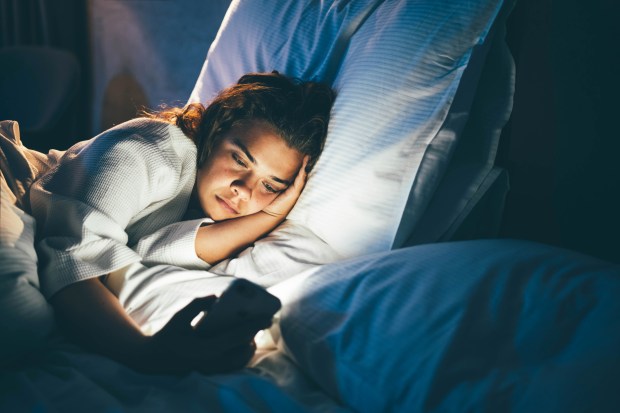Health
Social Media Use at Night Linked to Poor Mental Health, Study Finds

Research from Bristol University has revealed that posting on social media late at night can have a detrimental effect on mental health, comparable to the impacts of drinking alcohol or using cannabis. The study indicates that individuals who engage with platforms, such as X (formerly known as Twitter), after 23:00 experience significantly worse mental wellbeing.
The research analyzed data from 310 adults in the United Kingdom, focusing on the mental health differences between those who posted on social media between 23:00 and 05:00 and those who did so during the day. The findings suggest that late-night users scored, on average, four to eight points lower on a mental health scale of 70. This decline in mental wellbeing was attributed to disrupted sleep patterns caused by late-night social media use.
According to the researchers, late-night posting accounted for approximately 2% of the variation in mental health outcomes among participants. This impact is notably similar to findings from prior studies linking binge drinking and cannabis use to poor mental health.
Implications for Social Media Use
Daniel Joinson, the study’s lead author, emphasized the importance of these findings in understanding the potential harms associated with night-time social media engagement. He stated, “Our paper highlights the potential harm of night-time content posting. Research like ours could help inform interventions or legislation that aim to deter harmful social media use.”
The study aligns with polling conducted by YouGov, which found that 90% of Britons check their smartphones within an hour of going to bed. This trend raises concerns about the consequences of screen time on sleep quality and mental health, particularly among younger users.
Joinson advocates for solutions such as curfews or “wind-down” features in social media applications to encourage healthier habits. These measures could help mitigate the negative effects of prolonged social media use before bedtime.
Support for Mental Health Issues
In light of these findings, it is crucial for individuals experiencing mental health challenges to seek support. Numerous organizations offer confidential assistance to those in need, including:
– Samaritans: 116 123, www.samaritans.org
– CALM (Campaign Against Living Miserably): 0800 585 858, www.thecalmzone.net
– Papyrus (Prevention of Young Suicide): 0800 068 41 41, www.papyrus-uk.org
– Shout: Text 85258 to start a conversation, www.giveusashout.org/get-help/
– Mind: 0300 123 3393, www.mind.org
– YoungMinds: 0808 802 5544, www.youngminds.org.uk
– Rethink Mental Illness: 0300 5000 927, www.rethink.org
– Heads Together: www.headstogether.org.uk
These resources provide vital support for anyone struggling with mental health issues, emphasizing the importance of seeking help when needed. As social media continues to play a significant role in daily life, understanding its implications for mental health will be essential for fostering a healthier online environment.
-

 World2 days ago
World2 days agoCoronation Street’s Shocking Murder Twist Reveals Family Secrets
-

 Entertainment4 months ago
Entertainment4 months agoKate Garraway Sells £2 Million Home Amid Financial Struggles
-

 Entertainment3 months ago
Entertainment3 months agoAnn Ming Reflects on ITV’s ‘I Fought the Law’ Drama
-

 Health3 months ago
Health3 months agoKatie Price Faces New Health Concerns After Cancer Symptoms Resurface
-

 Entertainment3 weeks ago
Entertainment3 weeks agoCoronation Street Fans React as Todd Faces Heartbreaking Choice
-

 World3 weeks ago
World3 weeks agoBailey Announces Heartbreaking Split from Rebecca After Reunion
-

 World5 days ago
World5 days agoKevin Sinfield Exceeds Fundraising Goal Ahead of Final Marathons
-

 Entertainment3 months ago
Entertainment3 months agoCoronation Street’s Carl Webster Faces Trouble with New Affairs
-

 Entertainment5 days ago
Entertainment5 days agoTwo Stars Evicted from I’m A Celebrity Just Days Before Finale
-

 Entertainment3 months ago
Entertainment3 months agoWhere is Tinder Swindler Simon Leviev? Latest Updates Revealed
-

 Entertainment4 months ago
Entertainment4 months agoMarkiplier Addresses AI Controversy During Livestream Response
-

 Science2 months ago
Science2 months agoBrian Cox Addresses Claims of Alien Probe in 3I/ATLAS Discovery




















